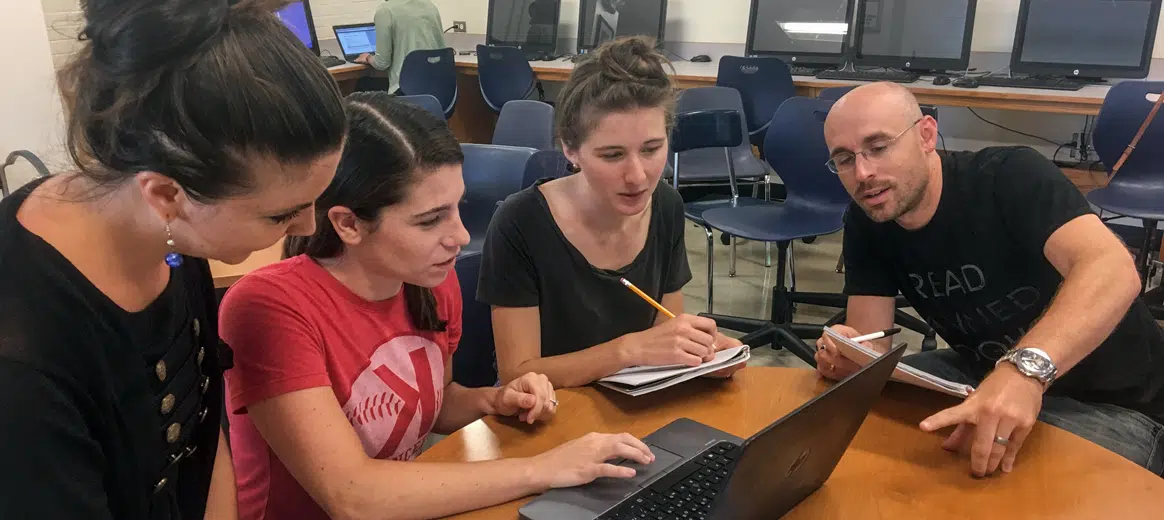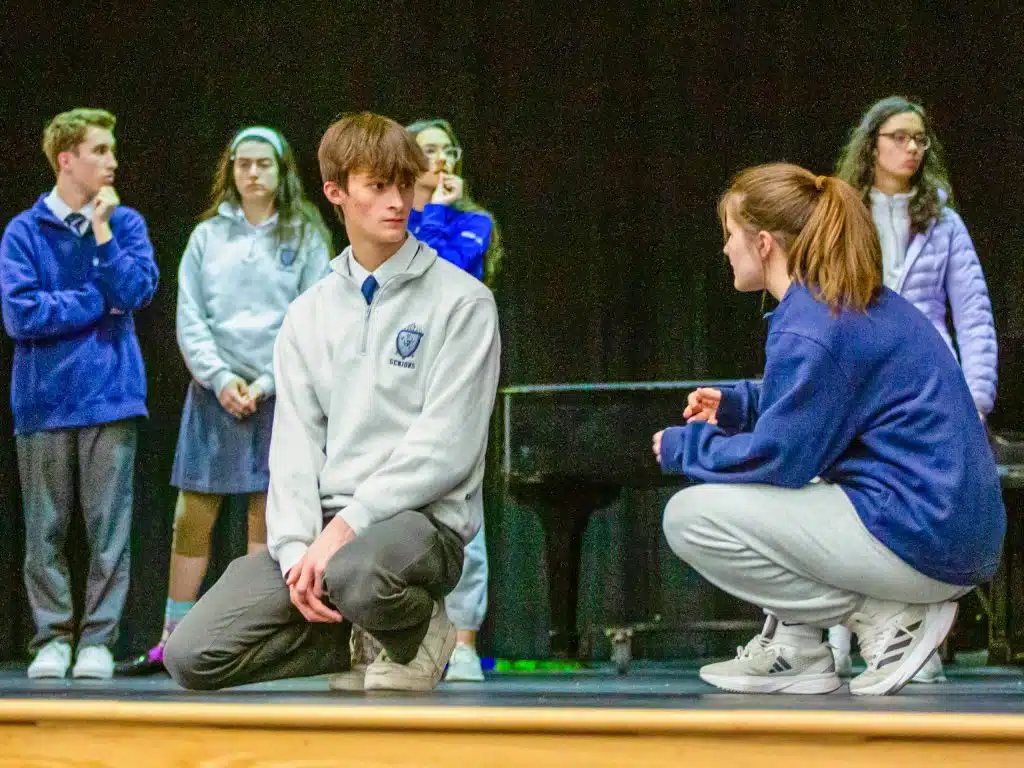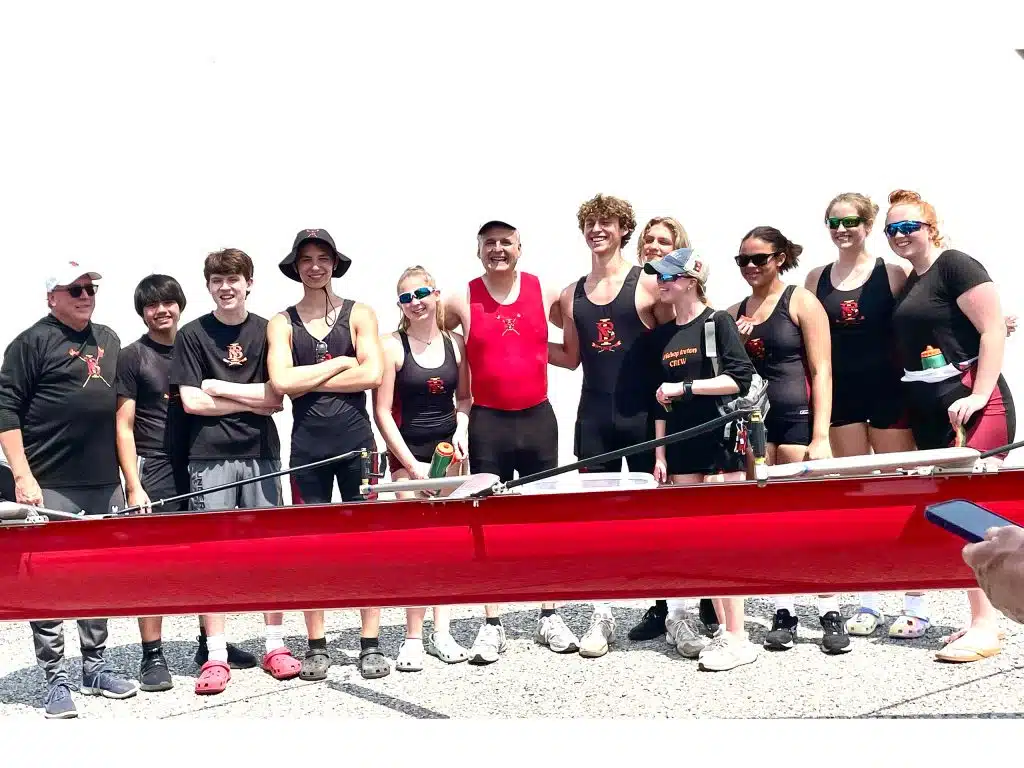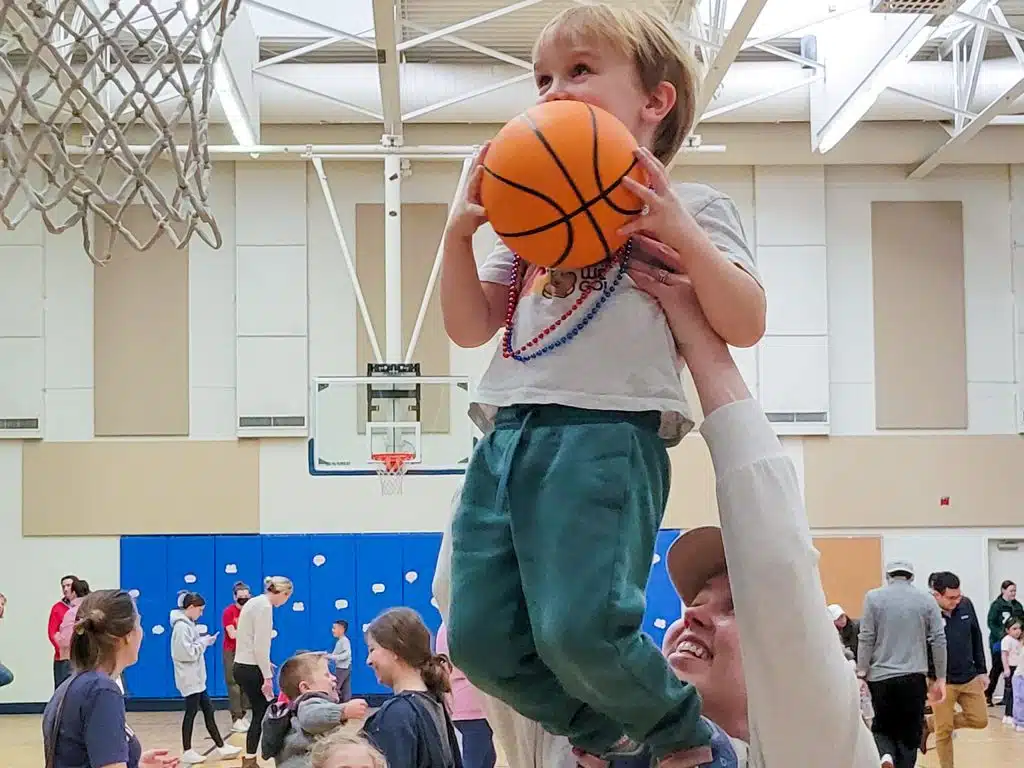Carl Patton is assistant head of school and director of curriculum and instruction at Bishop O’Connell High School in Arlington. Last year, he engaged teams of faculty and administrators in a comprehensive curriculum audit.
“This is a best practice that enables us to take a look at what is being done across disciplines, how and for what purpose,” said Patton. “It opens up great conversations among the Catholic education professionals in the building about how learning is happening and its steps and sequences.”
“There is no doubt that the educational landscape is always changing and these audits allow us to be deliberate in how we move forward,” added Joseph Vorbach, head of school. “Our school is committed to providing a rigorous, relevant and student-centered curriculum with intentional focus on how our students experience the Catholic mission of the school.”
Initial efforts earlier this year provide a sequence of guiding principles for each grade level:
9th Grade — Dignity of the Human Person;
10th Grade — The grace of being a Catholic community;
11th Grade — Using your faith as a guide;
12th Grade — Living your faith in the broader world.
“These themes ensure that we weave our Catholic identity in a systematic way,” said Patton. “They build on each other and eventually prepare our students for life beyond O’Connell.”
Over the course of the upcoming school year, teachers, instructional coaches and administrators will collaborate by department, looking at ways to enrich, improve, and revise the curriculum to integrate these principles into each course and unit offered in all departments.
In the spring of 2017, four teams of freshman teachers from different subject areas — English, history, science and religion — began to dig into the audit. They viewed the freshman curriculum using three basic questions:
1) Why is this particular unit included in our curriculum?
2) What are the specific skills that will be the focus of instruction for this unit?
3) How can authentic student mastery of these skills be assessed? (Beyond rote memorization)
Working with the support of the instructional coaches and literacy specialist in the school’s “igKnight” professional development program, the group discussed cross-curricular and interdepartmental idea-sharing and support initiatives.



